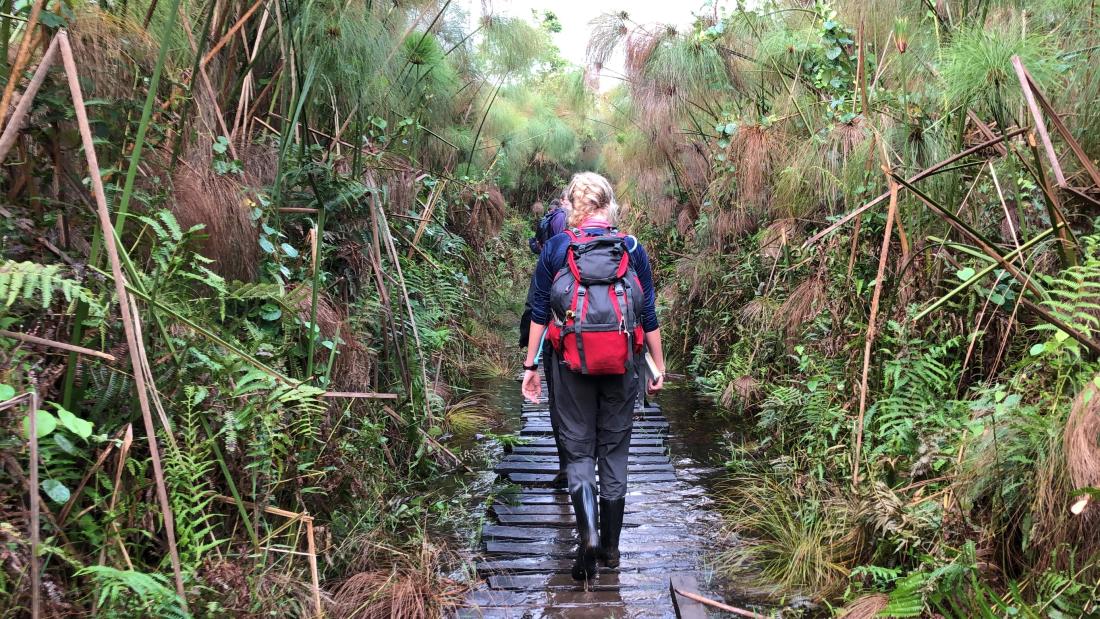About This Course
This course is accredited by the Institute of Chartered Foresters and gives partial fulfilment of Professional Membership Entry.
Are you excited to play a role in changing our food system to a more sustainable one? This Master of Science (MSc) programme provides you with a detailed understanding of agroforestry as part of a sustainable food production system, including its social and environmental components. It will enable you to implement the latest research into sustainable production systems thinking and will facilitate entry into agroforestry-related careers. The programme suits people with interests in the agri-food, farming, environmental, conservation, and agricultural sectors, and covers both temperate and tropical contexts.
On this course you will:
- Examine the environmental, economic and social aspect of agroforestry in the context of food security and the changing environment.
- Study how selected agroforestry management practices can improve the resource-efficiency and overall sustainability of food production.
- Gain a global perspective to question whether and how growing demand for food from limited land resources can be met through agroforestry and sustainable intensification.
There is a long tradition of agroforestry practice in many parts of the world, but recently it has become a major focus in international development and is now at the forefront of innovation in natural resource management.
Why choose Bangor University for this course?
- We have been teaching agroforestry for over 25 years and forestry and agriculture degrees have been running for over 120 years.
- Bangor University is a world leader in agroforestry with a fantastic reputation for its research and teaching activities.
- The course has attracted students from more than 30 countries and through our alumni and partners we have strong links with a wide variety of international, regional, and national organisations in Africa, Asia, Europe and the Americas.
- We have close links with agroforestry and environmental organisations internationally and in the UK such as World Agroforestry (ICRAF) and CATIE. Staff of these organisations make regular contributions to the programme. Our graduates are now working in agroforestry and related sciences all over the world.
- Scholarships are available for this course.
Student Profile - Syamili Manoj Santhi, MSc Agroforestry and Food Security
Course Content
What will you study on this course?
Taught component (120 credits) comprises modules. Modules are 15 credits and may include both coursework and/or examination(s).
Dissertation component (60 credits) comprises a dissertation – an independent research project which is led by the student who works closely with an academic supervisor to submit their own high-quality postgraduate level research.
Applicants not wishing to study for the full MSc (180 credits) can take exit awards of either Postgraduate Certificate (60 credits) or Postgraduate Diploma (120 credits).
Modules for the current academic year
Module listings are for guide purposes only and are subject to change. Find out what our students are currently studying on the Agroforestry and Food Security MSc Modules page.
Course content is for guidance purposes only and may be subject to change.
Entry Requirements
A 2(i) undergraduate degree in a relevant subject, e.g. Agriculture, Forestry, Environmental Sciences, Ecology, Conservation Sciences, Sustainable Development, Geography or Biological Sciences. Alternatively, a first degree in an unrelated subject plus relevant practical experience may be accepted. Applicants are judged on their individual merits. Work experience and other factors are also considered. Students with degrees in forestry, agriculture, geography, biology, environmental studies, economics, law, social sciences, philosophy and modern languages have graduated from this course.
IELTS: 6.0 (with no element below 5.5) is required.
Careers
Current students and recent graduates have secured jobs in a wide variety of fields in natural research management and food security., Roles include consultants and managers in agriculture, agribusiness and environment, as well as policy and advocacy roles for government or NGOs. Others have continued their education with a PhD, work as researchers and teach/train others in the field. Career prospects also include promotion for those already employed in agroforestry or related professions.



